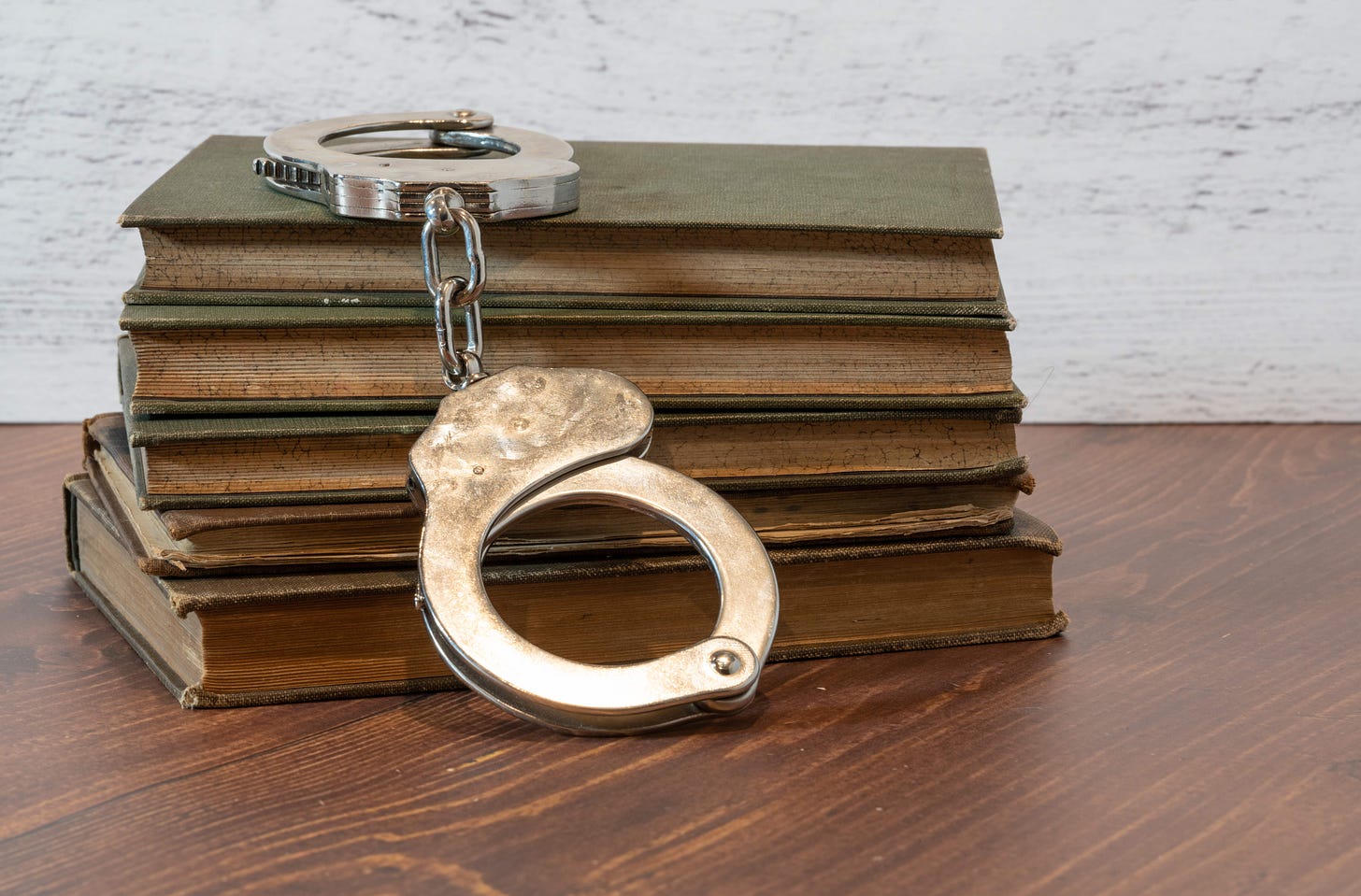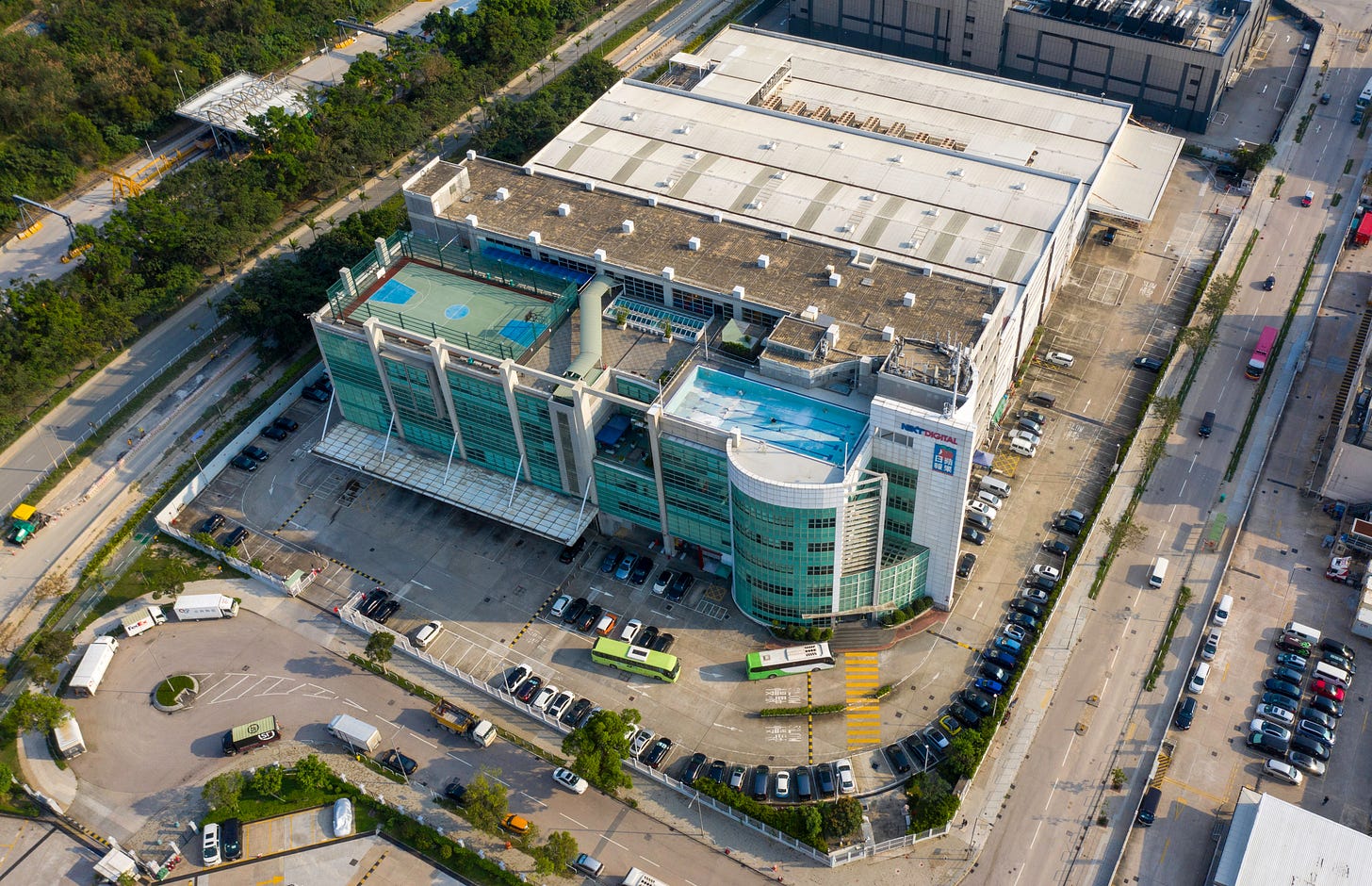E-Pluribus | June 18, 2021
Academic freedom and CRT, SCOTUS and religious liberty, and China declares a newsroom in Hong Kong a crime scene.
A round up of the latest and best writing and musings on the rise of illiberalism in the public discourse:
Nate Hochman: Critical Race Theory and Academic Freedom
While even some conservatives have been critical of states banning the teaching of Critical Race Theory in schools as an illiberal solution to a real problem, Nate Hochman argues at City Journal that legislative restrictions on “monopolistic, government-run institutions” are a reasonable check on what schools and teachers are permitted to teach taxpayers’ children.
Beyond the hyperbole, substantive critiques of the new legislation usually allege that curricular restrictions violate “academic freedom.” Insofar as this contention originates on the left, one could regard it as a cynical manipulation of language. After all, progressives have had little to say about free speech in education for at least a generation; that they have suddenly rediscovered the virtue of an open marketplace of ideas now is convenient.
At the same time, however, a significant number of genuine defenders of academic freedom, on the left and right, have also voiced opposition to the bans on CRT-based curricula in taxpayer-funded schools. Their views deserve to be taken seriously. These critics object to the anti-CRT laws on first principles, contending that a ban on teaching a particular ideology or doctrine in public schools undermines free speech and related constitutional rights. “The federal courts should reflexively invalidate anti-CRT laws on First Amendment grounds,” writes First Amendment law professor Ronald Krotoszynski in the Washington Post. “Educators cannot do their job if state governments attempt to ban the teaching of ideas they fear.”
But the dogmatic insistence that political “neutrality”—a fuzzy idea, by any measure—be strictly adhered to in all government policy, in lieu of legislators ever promoting a substantive vision of the good, represents a fundamental misinterpretation of academic freedom in a publicly funded setting. This argument is particularly perplexing in the context of taxpayer-funded grade schools. The idea that banning specific topics in these schools’ curricula is government “overreach” misses the fact that public K-12 programs are monopolistic, government-run institutions; a change in their curricular requirements does not expand state power in any substantive way.
Read it all here.
Wall Street Journal: One Cheer for the Supreme Court on Religious Liberty
We have grown accustomed to sharply divided rulings from the Supreme Court on divisive cultural issues, so the unanimous decision in a case that pitted religious freedom against LGBT rights was heartening. However, given the limited scope of the ruling, the editorial board of the Journal can only muster a single hurrah for John Roberts’s court.
The facts in Fulton v. Philadelphia show who is the cultural and legal aggressor. The Catholic Church has been caring for Philadelphia’s orphans since at least 1798, long before foster care was a government service. Catholic Social Services (CSS) has operated under a city contract for 50 years. No gay couple has ever asked CSS for certification as a foster family. Twenty-seven other groups meet that need.
This was the state of play until 2018, when a newspaper quoted the archdiocese’s spokesman as saying that CSS couldn’t certify a hypothetical gay couple seeking its services. A city commissioner lectured CSS that “things have changed since 100 years ago,” and “it would be great if we followed the teachings of Pope Francis. ” The city then refused to renew CSS’s contract. Foster parents sued, including Sharonell Fulton, a black foster mom who has cared for 40 children over 25 years.
The good news is that no Justice took Philadelphia’s side. But it’s hard not to read the Court’s narrow opinion, written by Chief Justice John Roberts, as another example of his mode of seeking consensus by watering down principle. He wants to win over liberal Justices and he is reluctant to take the heat from overturning even dubious precedents. But the cost is less protection for religious belief that is increasingly under siege by the state.
Read it all at The Wall Street Journal.
Kevin D. Williamson: A Crime Scene in Hong Kong
The Communist government of China continues to tighten its grip on Hong Kong’s throat, most recently with a massive show of force against the pro-democracy newspaper Apple Daily. Kevin D. Williamson offers a stark warning that the hostility towards a free press is not and will not remain confined to China.
The newsroom was declared a crime scene. Coming from Beijing, that declaration is something better and more meaningful than 10,000 Pulitzer Prizes. Li Kwai-wah, who represents the police part of the Chinese police state in Hong Kong, warned the general public not to share Apple Daily stories on social media. “As a law enforcer, I would advise you not to invite suspicion,” he said. Gangsters all talk the same way: “Nice little setup you have here. Be a shame if anything happened to it.”
[…]
And when you decide that you cannot live in security while enterprising reporters and columnists and their rowdy newspapers are at liberty, then you have made an indictment of your own system and its leaders that is far harsher than anything Jimmy Lai has put forward. Shutting down newspapers is an admission that yours is a kingdom of lies. When the government shuts down a newspaper, it is the government, not the newspaper, that has been judged. All the government has done is shown that it has more brute force at its disposal — for the moment. Brute force does not last forever. There was a China before the Communist Party, and there will be a China after the Communist Party.
But the damage done in the meantime will not be contained within China.
“The great strength of the totalitarian state is that it forces those who fear it to imitate it,” observed Adolf Hitler, who would have known. And there are those who envy the Chinese state its brute power to act, a decisive force that Americans have coveted since Ezra Pound was singing the praises of Benito Mussolini and the “totalitarian states, which won’t stay still” but reserve to themselves the ability to command resources according to a national program: Tom Friedman and his “China for a Day” fantasies, Donald Trump and his ghastly admiration for the men who ordered tanks to drive over the protesters at Tiananmen Square, thereby demonstrating the “power of strength,” etc.
And there are a great many Americans — maybe even a majority — who feel about the press about same way Xi Jinping does: “the enemy of the people,” as you may have heard it put from time to time. Very likely King George thought the same thing about the two-dozen pseudonymous colonial newspaper polemicists who were all, as it turns out, Sam Adams. Very likely the Inquisition thought the same thing about the enterprising Dutch printers who published those smuggled Galileo manuscripts. They had their reasons — they always do: raisons d’état.
Read the whole thing.
Around Twitter
As the Biden administration considers changes to Title IX rules, David French highlights a Lara Bazelon thread about the dangers of going backwards on campus due process:
Christopher Rufo endorses (artwork excepted!) a recent New Yorker profile of himself and his fight against CRT:
A favorable book review at Science Based Medicine of Abigail Shrier’s book IRREVERSIBLE DAMAGE on girls and the transgender movement was retracted over “too many issues with the treatment of the relevant science”:











